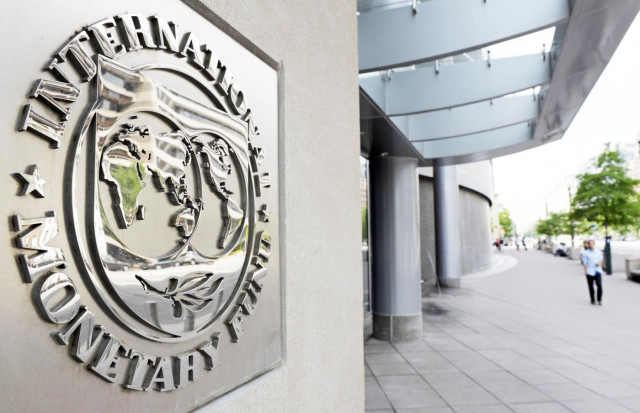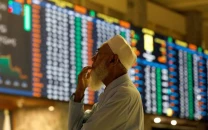Lobbying: Dar’s tete-a-tete with IMF clears way for loan tranche
No consensus reached during earlier talks as govt fails to meet some targets.

Lobbying: Dar’s tete-a-tete with IMF clears way for loan tranche
Hectic lobbying in the International Monetary Fund’s (IMF) headquarters and a closed-door one-on-one meeting between Finance Minister Ishaq Dar and the IMF mission chief helped Pakistan to qualify for a $1.1-billion loan tranche after progress could not be made during earlier talks.
Background discussions with officials of the Ministry of Finance revealed that during the recently concluded talks, things had got stuck at one stage. The sitting held for the fourth and fifth economic review under the $6.7 billion loan programme continued from October 30 to November 8 in Dubai.
There was no convergence of views on some issues during the technical-level talks, officials said. Pakistan’s delegation was led by Finance Secretary Dr Waqar Masood and the IMF team was led by its Mission Chief to Pakistan Jeffery Franks.
However, the situation turned to Pakistan’s favour only after the finance minister lobbied in Washington and held a closed-door meeting with Franks for over one and a half hours, winning an extension of three more months to deliver on outstanding issues.
The IMF had doubts about the government’s ability to meet this year’s budget deficit target due to non-realisation of Rs145 billion from the Gas Infrastructure Development Cess (GIDC) and the increasing size of energy sector payments that remain outside the budget.
The IMF also sought a firm timeline to clip the Federal Board of Revenue’s powers to issue Statutory Regulatory Orders (SROs), said the officials.
The government also could not deliver on the targets of reducing its borrowing and building foreign currency reserves and got three concessions for a successful conclusion of the fourth and fifth reviews. It will have to meet these targets.
The IMF board is expected to meet on December 17 to approve the next loan tranche of $1.1 billion.
The government got the lifeline on the promise that it would work on the outstanding issues by the time both sides engage for the sixth review of the economy, which will take place early next year.
Ministry of Finance spokesman Rana Assad Amin was not available for comments. However, a senior official of the ministry said there was no dramatic intervention by Dar, as some of the issues were always resolved during policy-level talks, led by the finance minister.
One of the main concerns of the IMF was that due to a stay order granted by courts, the government would not be able to collect Rs145 billion on account of GIDC that amounted to 0.5% of gross domestic product. Pakistan has assured the IMF that it will try to get the order reversed from the court.
During first quarter (July-September) of the current fiscal year, the government could collect only Rs7.5 billion in GIDC. The officials said the IMF wanted the government to have a backup plan including an increase in gas prices to the extent that it was able to generate Rs145 billion by the close of current fiscal year.
They said the IMF was also concerned about the circular debt that remained outside the budget books and called for determining a maximum threshold of the debt to bring more transparency in fiscal operations.
The IMF also asked the government to bring an amendment to relevant laws to withdraw the FBR’s powers to issue the SROs. However, the government has expressed its inability to immediately introduce legislation in parliament, as it lacks a majority in the Senate.
It has assured the IMF that the legislation can be introduced after March next year when the government will be in a position to get its bills passed from the Senate. In case there is a delay in withdrawing the SRO powers, the World Bank’s next loan of $500 million might be delayed, said the officials.
The IMF was also of the view that the FBR could not achieve this year’s revenue target of Rs2.810 trillion. Either the government will have to take new measures or cut the development budget to cover the shortfall in revenues. The anticipated shortfall in tax revenues is approximately Rs150 billion.
Published in The Express Tribune, November 20th, 2014.
Like Business on Facebook, follow @TribuneBiz on Twitter to stay informed and join in the conversation.



















COMMENTS
Comments are moderated and generally will be posted if they are on-topic and not abusive.
For more information, please see our Comments FAQ